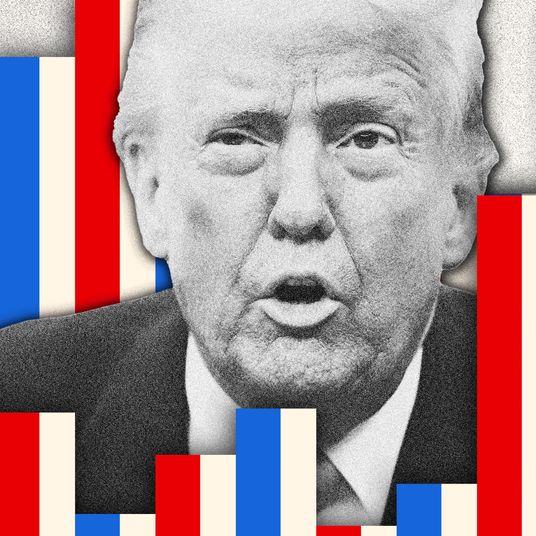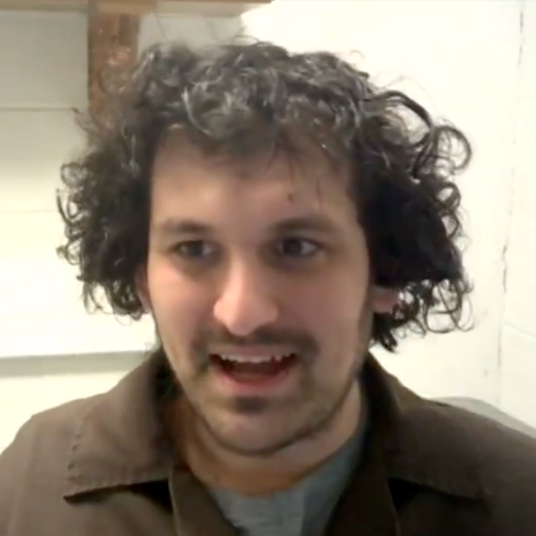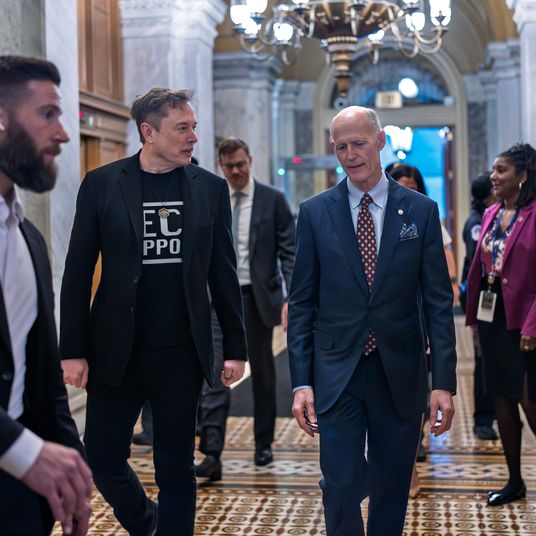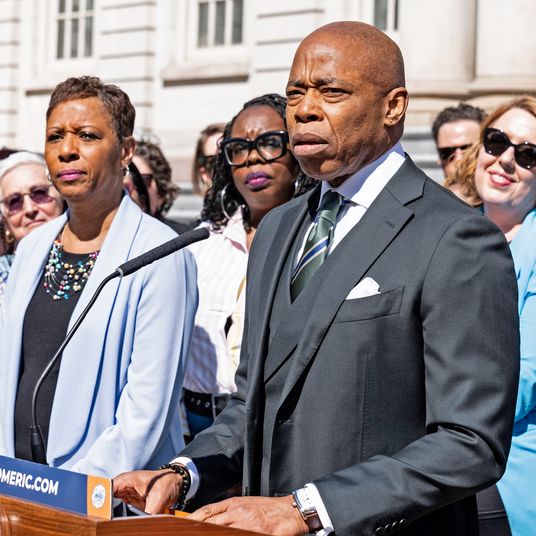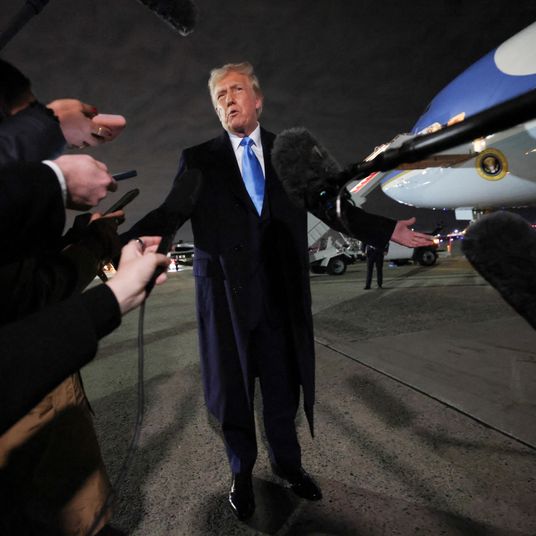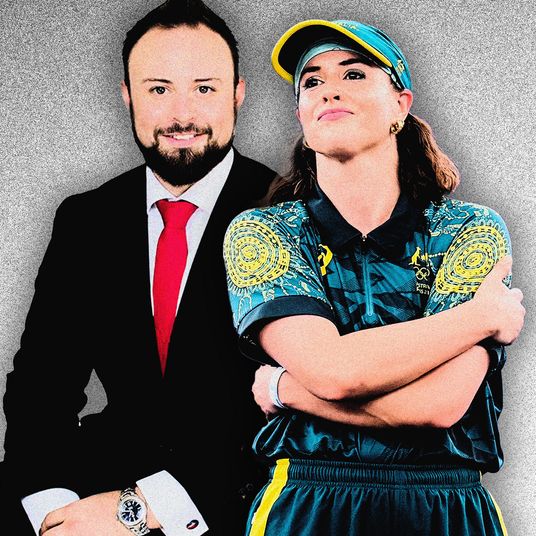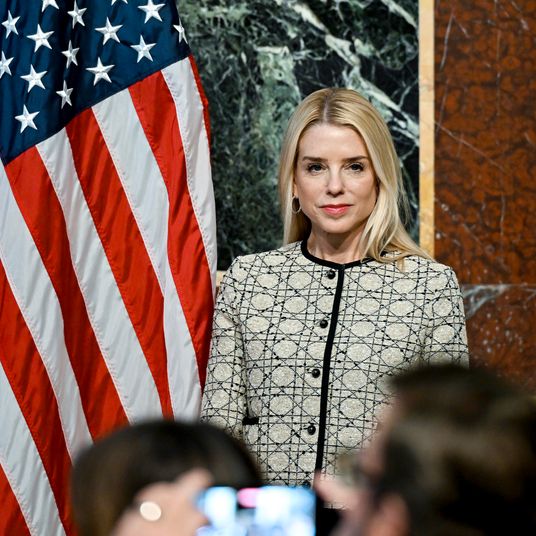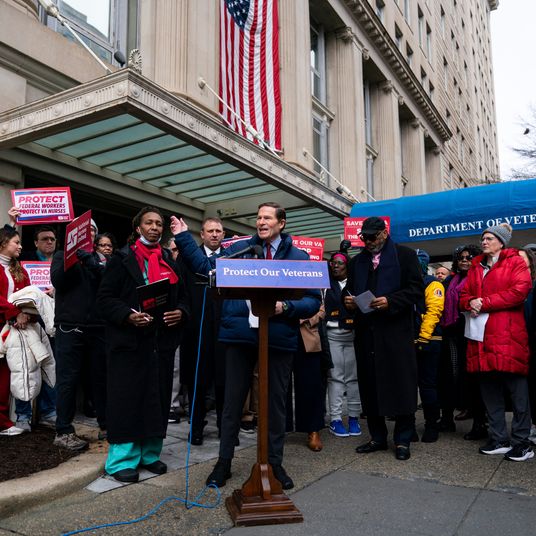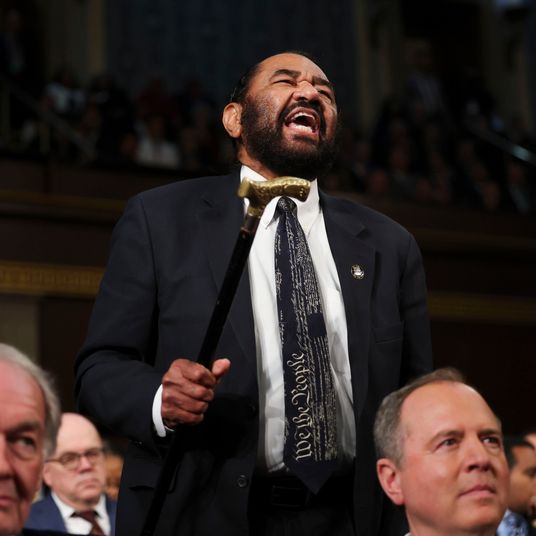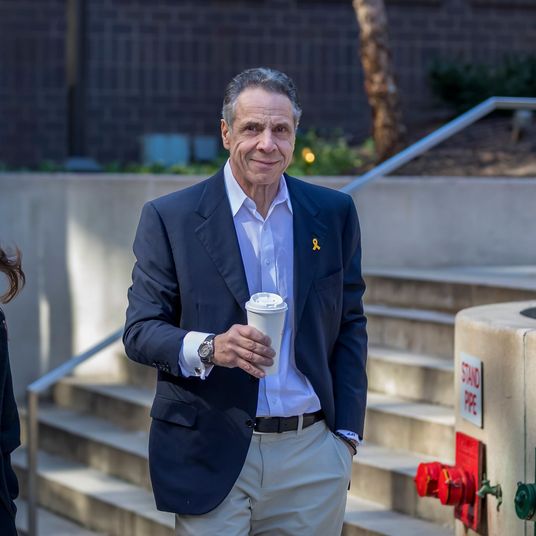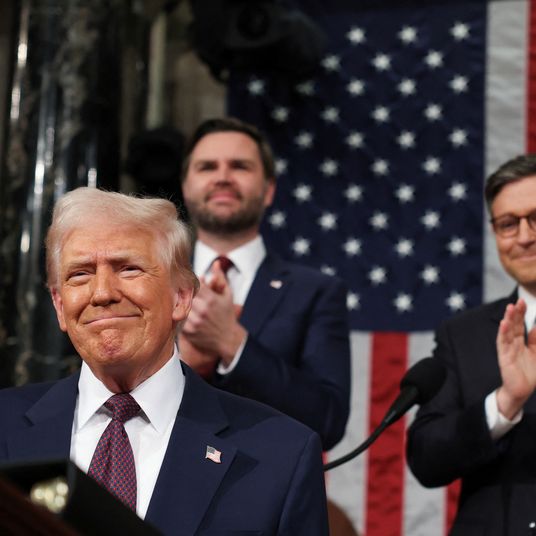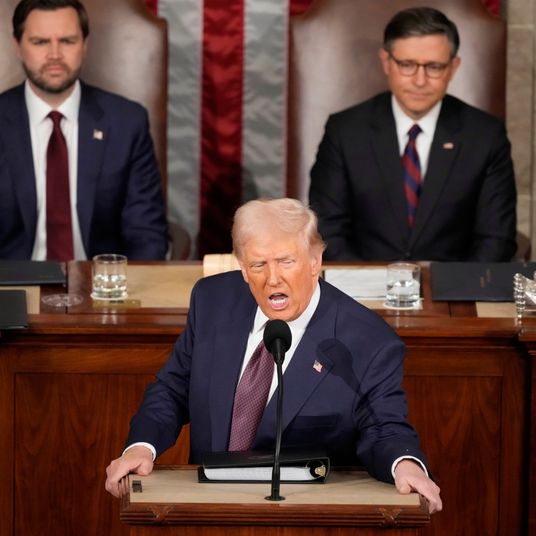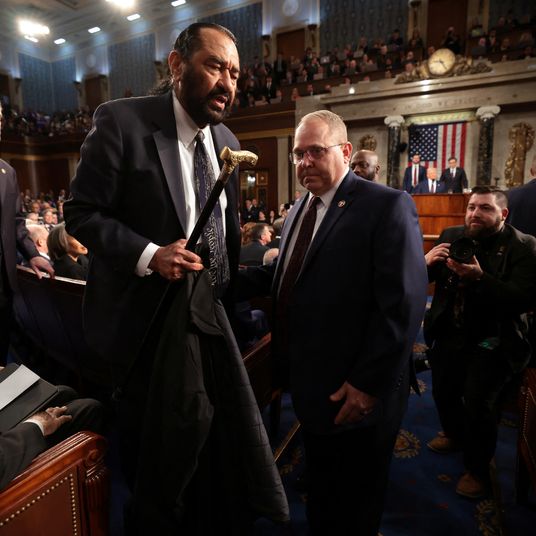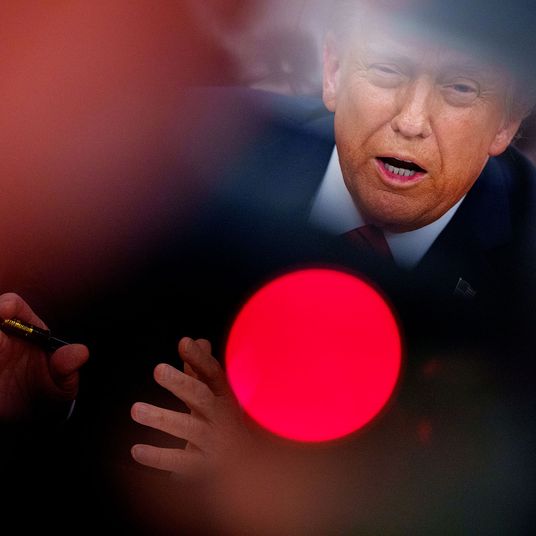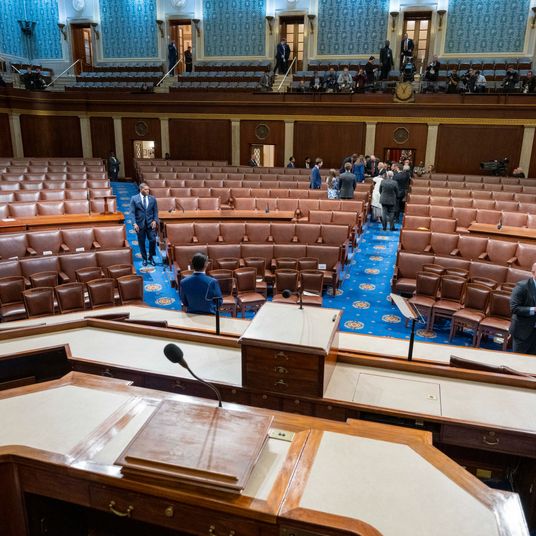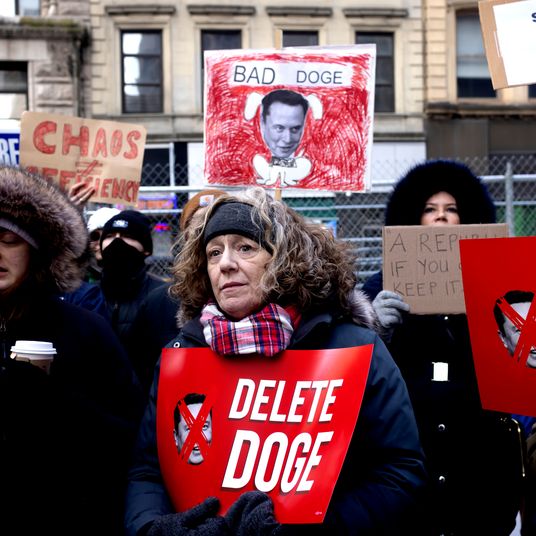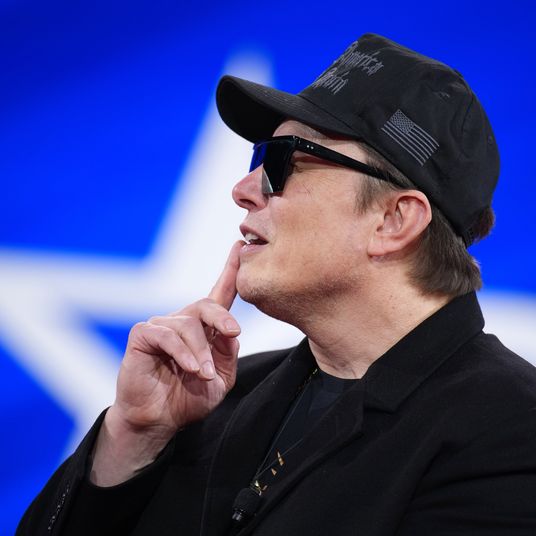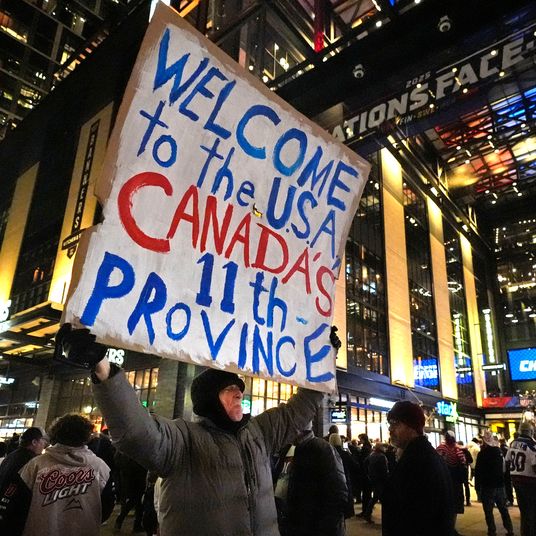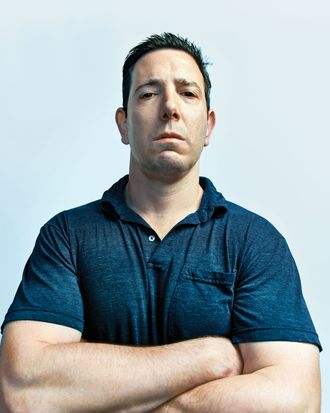
“Crickets have very short life spans,” Bradley Tusk tells me. We are standing in front of the Petco near Union Square, where he is considering purchasing a handful of Acheta domesticus for his 7-year-old son’s pet frog. “I’m there like once a week buying crickets. With all the innovations in technology, there still isn’t an easy way to have someone bring you live crickets. We tried with TaskRabbit. They were like, ‘No, we don’t deal with live animals.’ ”
Tusk, who lives three blocks away, is sensitive to the inconveniences of city life. His lobbying-consulting shop, Tusk Strategies, was the driving force behind Uber’s beatdown of Mayor de Blasio’s proposed cap on for-hire vehicles. Tusk’s entire client list, for that matter, can seem like a mayoral troll job. Earlier this year, he signed on to represent the unwaveringly anti–de Blasio Patrolmen’s Benevolent Association, the city’s largest police union. The 42-year-old’s latest mission, fueled by start-up righteousness, is to dethrone the mayor himself. “It seemed to me that people in the business community and the tech community and the education-reform community were all complaining incessantly about de Blasio,” says Tusk, a Michael Bloomberg loyalist who ran the former mayor’s 2009 reelection bid. “About how bad of a mayor he is, how corrupt he is, how lazy he is. But nobody was doing anything about it.”
Tusk has corrected this by launching an undisguised, multipronged attack against de Blasio. The point for now is not to prop up a live human challenger but to tear the incumbent down. “It’s sort of like, if this were football, I see myself as the fullback, clearing the path [for] potential candidates.” Bloomberg nostalgics have already volunteered their cash, Tusk says, but so far he insists on self-financing what he says is a low-six-figure effort. He has created a website and a super-pac, both named New York City Deserves Better. Plus, “we want to do a Kickstarter campaign that would buy an exercise bike for Gracie Mansion,” he says. (De Blasio commutes 11 miles from Gracie Mansion to the Park Slope YMCA.)
It turns out Tusk’s son’s frog is set on crickets, so we grab green beverages from a Jus stand and find a bench in Union Square Park. In his Bloomberg days, Tusk favored gingham and slacks. Today, he is an anthropomorphized Uber Black: dark jeans, dark untucked dress shirt, dark suede loafers.
To Tusk, Union Square embodies the deterioration of the city under de Blasio. “Union Square was in many ways the perfect story, depending on your perspective, of the massive improvement of New York City or the disruption of its character.” Rudolph Giuliani and Bloomberg booted the vagrants and cleaned the park up. Now, he says, de Blasio is letting it backslide. “The south side of the park is falling apart,” he says. “If you are a fan of Dinkins or de Blasio, you would say, ‘No, the character of the city is its grittiness, is people smoking weed outside, is people peeing.’ ” A homeless-seeming man wearing colorful rags and a top hat walks by our bench. “That guy’s a holdover from Bloomberg,” Tusk says. “We like him.”
Tusk’s case against de Blasio sounds like an urbanist’s take on the seven deadly sins: envy (class warfare), sloth (chronic tardiness), greed (federal campaign-finance-corruption probe). When it comes to pride, he argues, de Blasio is far from the transformational mayor he claims to be. “Go up to basically any poor person and ask them, ‘Is your life better than it was four years ago?’ ” he says. “ ‘Is your housing cheaper, are your schools better, are your neighborhoods safer, do things cost less, are you making more money?’ They’d answer no to every single one of those questions, right?” (“You’d have to live in a world of suspended reality to believe that,” says de Blasio adviser Peter Ragone, citing the expansion of pre-kindergarten and phaseout of stop and frisk.)
Meanwhile, Tusk thinks, the mayor and his fellow travelers willfully ignore the progress made by de Blasio’s predecessors. “The reality is, all your hipster friends who love Bernie Sanders could not have lived in Prospect Heights 20 years ago,” he says. “So it’s very easy when you weren’t here during the problems, and weren’t here to see the solutions, to sit here cavalierly and say, ‘Ohhh, you know, it’s the one percent.’ ”
Tusk was raised middle class in Sheepshead Bay, and later Long Island, by his Russian-immigrant father and Brooklyn-native mother. He attended college at the University of Pennsylvania and got into politics after chatting up then – Philadelphia mayor Ed Rendell at the 1992 Democratic National Convention. After working for Chuck Schumer, Tusk at 29 was named deputy governor of the state of Illinois by now–convicted felon Rod Blagojevich. “They wanted someone young and naïve so they could rob the place blind,” he reasons. (Tusk was not implicated in any of his employer’s pay-to-play schemes.)
Blago once tried to auction off a United States Senate seat; I ask Tusk if his charges of mayoral corruption, by comparison, are a tad aggressive. “I don’t think so,” he says. “I think there are a lot of parallels. Blagojevich was incredibly lazy. De Blasio is incredibly lazy.” (Tusk is fixated on the mayor’s
11 a.m. City Hall arrivals. He plans to create a “Did Mayor de Blasio Come to Work Today?” app.) He continues, “Blagojevich was unwilling to put in the hard work to raise money the honest way. De Blasio did the same thing with contracts from the city.” (The mayor has not been found guilty of anything.) “These are the kinds of outright lies he uses to avoid talking about Mayor de Blasio taking our city to record rates of affordable-housing creation and high-school graduation,” says the mayor’s press secretary, Eric Phillips. “Keep in mind that in the last campaign he ran, he eked out
a win only after a billionaire allowed him to spend $100 million.”
In any event, Tusk left Illinois and never returned to government work. He did a stint at Lehman Brothers, ran Bloomberg’s campaign for a third term, and eventually recast himself as a consultant–cum–venture capitalist. In exchange for equity, he would help politically clueless tech start-ups overcome annoying regulatory hurdles. (FanDuel is another of his high-profile clients.) Tusk won’t reveal exactly how many shares of Uber he owns, but someone familiar with the arrangement says that his stock is worth at least $100 million.
Increasingly, he has begun to behave like a caricature of a tech guru. He started an anti-hunger foundation, bought a Tesla, and began developing a TV pilot. “It’s about tech, drugs, and politics. Very much draws on my experiences in all three — the drugs part is in working with cannabis tech.” One of his recent blog posts offers “Advice for Rich People Who Want to Be More Than Just Rich People.” “I don’t mind putting myself out there and taking a few hits to do what I want to do,” he says, drawing a parallel to his client Travis Kalanick, the CEO of Uber. “He understands to achieve really big things, you’re going to piss a lot of people off.” I ask him if Kalanick is an asshole. He hesitates. “Are we off the record?” I tell him we are not. “No, he is not an asshole.”
Still, Tusk, who bears a strong resemblance to David Schwimmer, is more Ross Geller than Elon Musk. He eagerly wonders if New York might be willing to publish an article that Inc. magazine rejected. (“Nobody wants this column.”) At one point, I accidentally take a sip of his juice. “Cooties!” he says.
All Tusk needs now is a candidate to take on the mayor. When I ask him for some better-qualified options, he mentions New York City comptroller Scott Stringer, former Department of Housing and Urban Development secretary Shaun Donovan, and “most people in this park.” Finally, he settles on Facebook COO Sheryl Sandberg: “We could elect her in a heartbeat.”
A Hillary Clinton supporter, Tusk does allow one concession to the incumbent mayor. “Look,” he says. “If Trump were running against de Blasio, I’d support de Blasio.”
This article appears in the August 22, 2016 issue of New York Magazine.







